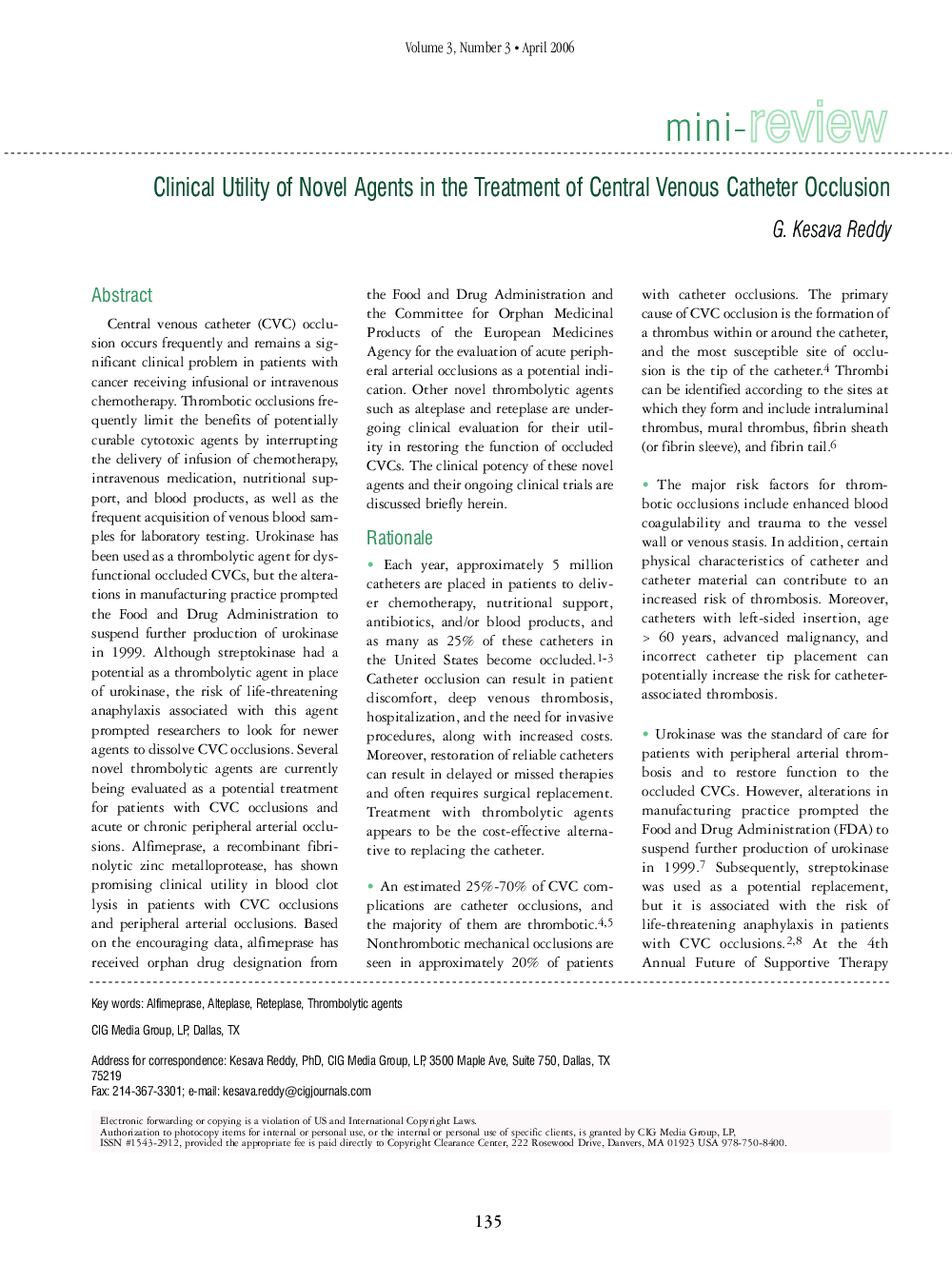| Article ID | Journal | Published Year | Pages | File Type |
|---|---|---|---|---|
| 3997629 | Supportive Cancer Therapy | 2006 | 5 Pages |
Central venous catheter (CVC) occlusion occurs frequently and remains a significant clinical problem in patients with cancer receiving infusional or intravenous chemotherapy. Thrombotic occlusions frequently limit the benefits of potentially curable cytotoxic agents by interrupting the delivery of infusion of chemotherapy, intravenous medication, nutritional support, and blood products, as well as the frequent acquisition of venous blood samples for laboratory testing. Urokinase has been used as a thrombolytic agent for dysfunctional occluded CVCs, but the alterations in manufacturing practice prompted the Food and Drug Administration to suspend further production of urokinase in 1999. Although streptokinase had a potential as a thrombolytic agent in place of urokinase, the risk of life-threatening anaphylaxis associated with this agent prompted researchers to look for newer agents to dissolve CVC occlusions. Several novel thrombolytic agents are currently being evaluated as a potential treatment for patients with CVC occlusions and acute or chronic peripheral arterial occlusions. Alfimeprase, a recombinant fibrinolytic zinc metalloprotease, has shown promising clinical utility in blood clot lysis in patients with CVC occlusions and peripheral arterial occlusions. Based on the encouraging data, alfimeprase has received orphan drug designation from the Food and Drug Administration and the Committee for Orphan Medicinal Products of the European Medicines Agency for the evaluation of acute peripheral arterial occlusions as a potential indication. Other novel thrombolytic agents such as alteplase and reteplase are undergoing clinical evaluation for their utility in restoring the function of occluded CVCs. The clinical potency of these novel agents and their ongoing clinical trials are discussed briefly herein.
